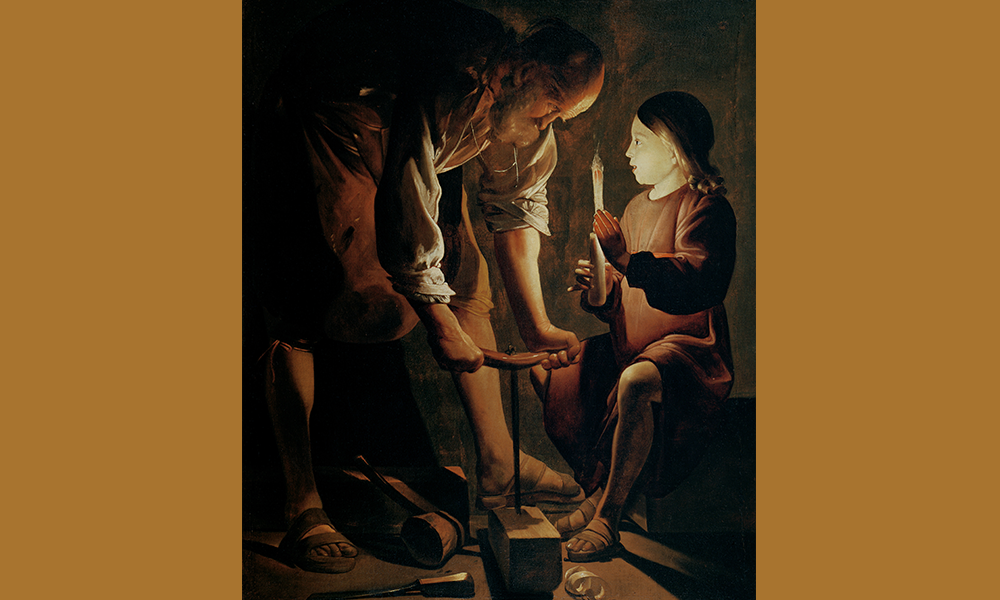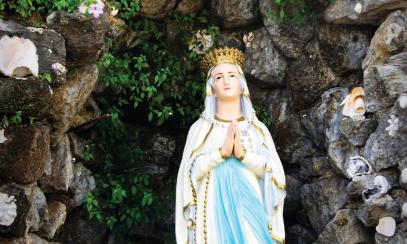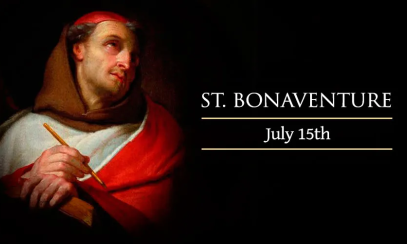
St. Joseph: A Man of Faith Followed His Dreams
Saint Joseph is introduced quickly in Matthew’s Gospel, and he disappears by the time of Jesus’ public ministry. His story is slender in details, but immensely meaningful for salvation history. Four brief dreams are the lynchpins for Joseph’s story. In their starkness, the dreams mirror age-old archetypal stories of our human journey. A person goes forth in life, endures trials, wins the prize, and returns home with greater maturity.
First dream
“Joseph, son of David, do not be afraid to take Mary your wife into your home” (Matthew 1:20).
Joseph’s story begins with a challenging but reassuring summons to go forth in life. Joseph wrestled with the prospect of taking on an enormous responsibility.
Through it all he is silent; the Spirit is speaking. Joseph’s famous silence (he speaks not one word in the Gospels!) indicates he is listening. Joseph is “a righteous man.” He listens with faith.
Often, when people are moving into a more mature phase of their journey in life, something has interrupted their lives. It may be a profound religious insight, it may be a serious setback, or a deeply felt loss. The person moves in an uncharted direction toward a different identity. The Bible only hints at Joseph’s travails. The journey to Bethlehem and a birth in a manger let the reader know that Joseph had to struggle with life’s contingencies. St. Luke tells us “there was no room for them in the inn.”
Second dream
“Rise, take the child and his mother, flee to Egypt...” (Matthew 2:13).
Herod is looking for Jesus. Joseph stays with his commitment and finds himself challenged to protect his family. The Holy Family is in danger. He and his family flee to a foreign land, a place without familiar supports.
When such a phase in life has been told in countless stories, archetypal images express the experience. It is like battling dragons, entering a dark forbidding forest, being swallowed by a whale. It is a precarious phase in life, with danger at the edges.
The stories say, stay in the dark, remain in Egypt, learn what needs to be learned; Herod still lives!
Maturity in life usually comes through trials. Those who have had to wrestle with a problem, or problems, often emerge with a deeper, more mature personality. The wounds and scars of life have given shape to a resilient, more self-confident person. From a faith perspective, the individual becomes less ego-centered and more God-centered. This individual story is part of a larger story God is telling.
Third and fourth dreams
“Rise, take the child and his mother, and go to the land of Israel...” (Matthew 2:20).
Herod has died. Patience, trust, and continual deep listening move Joseph to a new situation. The danger subsides, the journey is renewed, and eventually his pilgrimage takes him back home. At first he was going to return to Judea, but once again, “because he had been warned in a dream” (Matthew 2:22) he made his home in Nazareth, a town in Galilee. Joseph begins a family life, works in a trade, and becomes a well-known citizen in town.
In parallel mythic stories, when dark forces are engaged, eventually the dragon is defeated, the center of the forest is reached, and the pearl, the treasure, or the chalice is recovered. The hero returns home with the prize. G.K. Chesterton wrote, “The purpose of all journey is to come home.”
Our dreams
Unexpected guidance can come from dreams, intuitions, serendipitous occurrences. The Magi followed a star to arrive in Bethlehem, and they followed a dream to return home “by another way” (Matthew 2:12). Because it is a graced world with the presence of God accompanying and sustaining it, all of creation is sacramental. Any part of it, including our dreams, may speak to us of the nearness of God’s Spirit, the presence of the Reign of God. St. Teresa of Avila said, “I believe that in each little thing created by God, there is more than what is understood, even if it is a little ant” (Interior Castle, IV, 2, 2).
It is not necessarily that God is speaking directly to us in our dreams. It is what we do with these unexpected events. It is our relationship to the events that may offer guidance. Those occasions that shimmer with mystery, such as dreams or nature’s marvels, may evoke a readiness in us to be led into a deeper life, a more fulfilling life, a life more closely related to the story God is telling.
In a morning meditation on a past feast of Saint Joseph, Pope Francis asked the saint to grant all of us “the ability to dream because when we dream great things, good things, we draw near to God’s dream, what God dreams about us” (L’Osservatore Romano).



